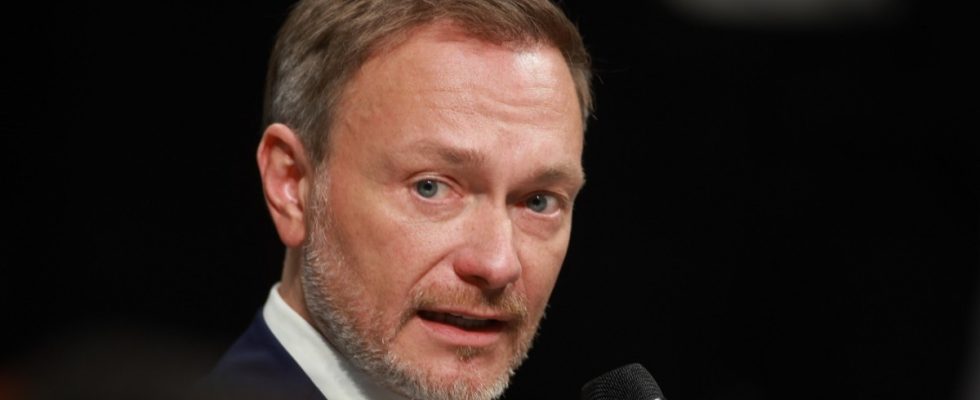Finance Minister Christian Lindner has announced that he will make it easier to invest in the defense industry. “We will reduce regulatory hurdles in the EU and Germany,” said Lindner (FDP) on Saturday in Munich on the sidelines of the security conference. A “second turning point” is necessary so that the arms industry receives the investments that are necessary given the security situation in Europe. Chancellor Olaf Scholz and Defense Minister Boris Pistorius (both SPD) also emphasized that capacity needs to be expanded. The arms company Rheinmetall also announced in Munich that it wants to produce artillery ammunition in Ukraine.
“Although the state is a client and customer of the security and defense industry, companies still need private investments and financing,” said Lindner. “That’s why a second turning point is necessary that improves the reputation and framework conditions for the industry.” The Finance Ministry said that there were discussions with representatives from the financial sector and the security industry on the sidelines of the conference.
The background to this is that, on the one hand, there are restrictions on a number of insurance funds or development banks not being allowed to invest in the military sector. In addition, some investors are also concerned about a loss of image and public criticism if they invest in defense companies. At the same time, however, the industry’s capital requirements are increasing due to the sharp increase in demand for new weapons and ammunition.
Chancellor Scholz (SPD) had already warned that weapons would have to be manufactured on an industrial scale in Germany in the future. “At the same time, there is a clear message that the federal government stands behind this sector. Banks, insurance companies and funds should no longer shy away from commitments because they fear for their public image,” said Lindner. Scholz had already committed to long-term contracts with defense companies so that they could build new factories for weapons and ammunition.
At the conference, Lindner and Scholz once again assured that Germany would meet NATO’s goal of investing two percent of economic output in defense beyond 2028 and the expiry of the 100 billion euro special credit line. This creates reliability for companies and investors.
“Without a strong defense industry, we will not be able to invest in equipment, weapons and ammunition,” said Defense Minister Pistorius in Munich. And with a view to the Russian rearmament that has been going on for years, Chancellor Scholz alluded to the fact that the West is economically stronger and now has to show this. Even if Russia uses all the revenue from its raw material sales, the country will not be able to match the sums that the Europeans could collectively spend on defense. “Simply because our economic system is successful,” said Scholz.
Rheinmetall plans to produce in Ukraine
The arms company Rheinmetall wants to produce artillery ammunition in a joint venture in Ukraine. A corresponding declaration of intent was signed on Saturday on the sidelines of the Munich Security Conference in the presence of Alexander Kamyshin, the Ukrainian Minister for Strategic Industries, Rheinmetall said. In the future, the “Ukrainian Competence Center for Ammunition” is expected to produce a six-digit number of projectiles with an artillery caliber of 155 millimeters per year, including the corresponding propellants. For this purpose, a factory is to be built that Rheinmetall and an unnamed Ukrainian partner want to operate jointly. Rheinmetall holds 51 percent of the joint venture.
“The need for artillery ammunition in many countries is enormous – first and foremost, of course, in Ukraine,” explained Rheinmetall boss Armin Papperger. “Our intention to establish another joint venture there underlines how serious Rheinmetall is about supporting the country.” The joint venture will make a significant contribution to Ukraine’s defense capability. Just last week, Rheinmetall celebrated the laying of the foundation stone for a new ammunition factory in Unterlüß, Lower Saxony. The lack of ammunition is currently considered one of Ukraine’s main problems in its defense against Russia.

